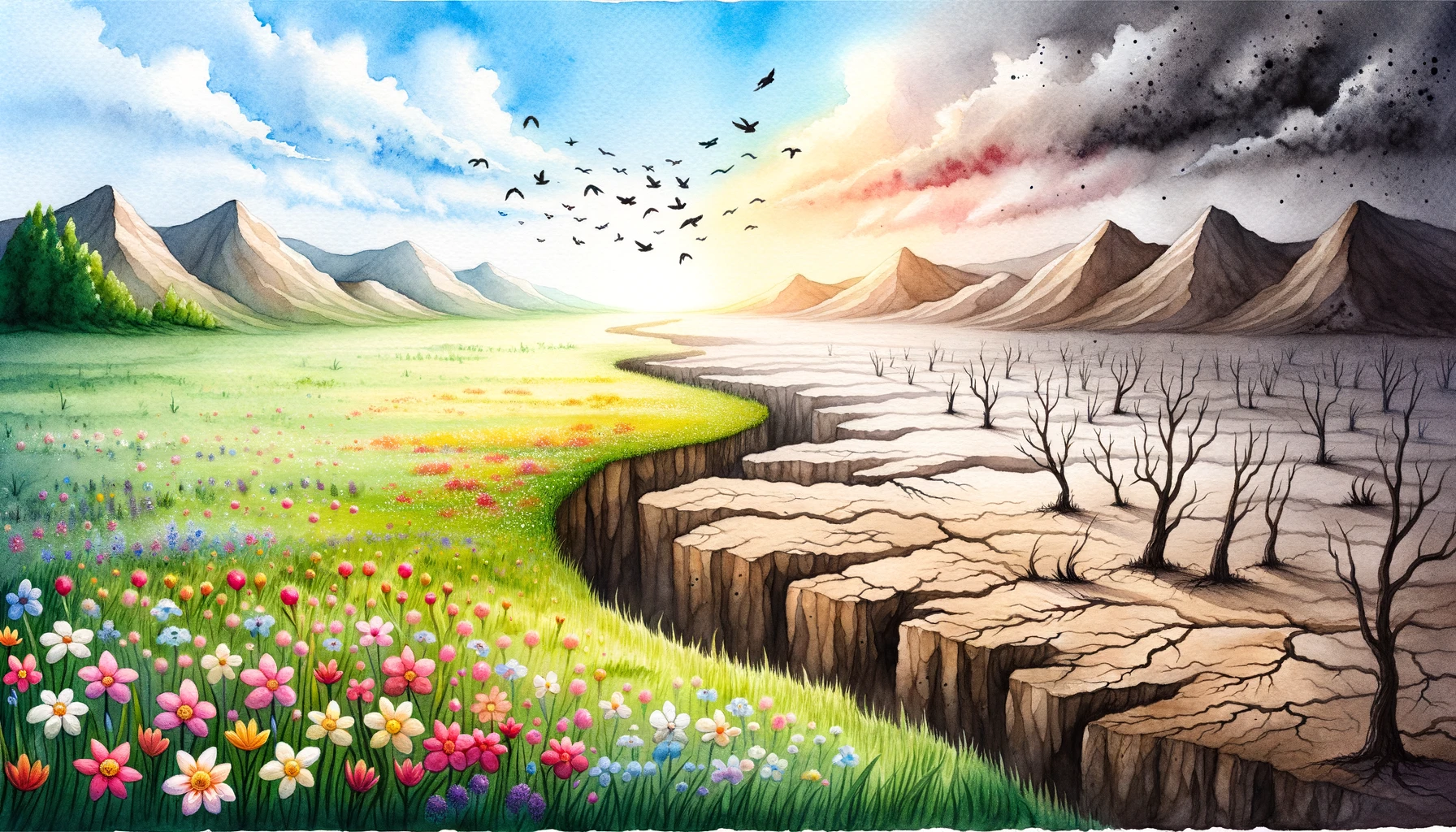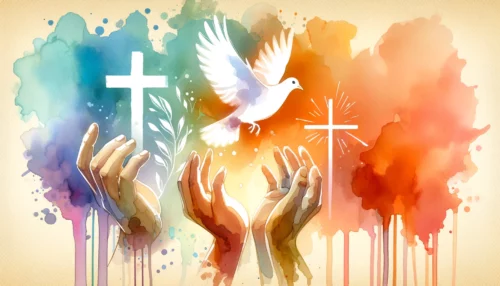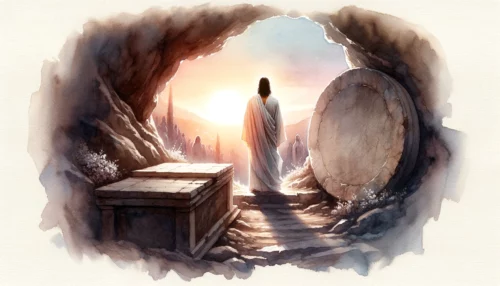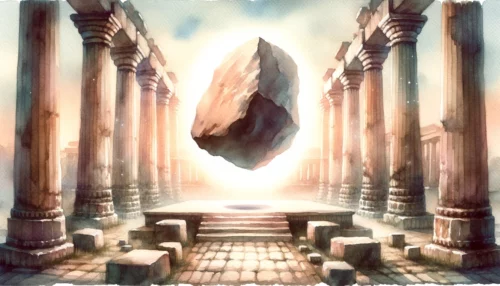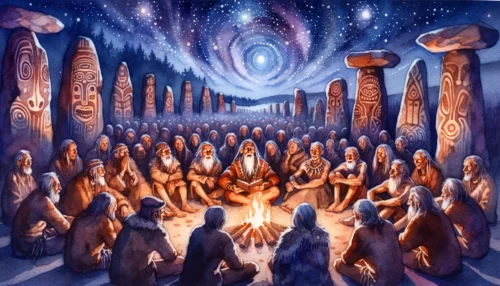The age-old question of why there is evil in a world created by a good God has puzzled believers and skeptics alike. In this article, we’ll explore the biblical perspective on this challenging topic, and attempt to make sense of this apparent paradox. Through the lenses of scripture and Christian teachings, we’ll examine the origins of evil and its role in our world. Our goal is to provide a thoughtful and engaging exploration of this complex subject in a way that’s approachable for everyone.
The Nature of God and the Origins of Evil
When discussing the nature of God, Christians believe in a loving, all-powerful, and perfectly good deity. However, many people wonder how a good God could create a world where evil exists. To address this question, we must first consider the origins of evil. According to the Bible, evil was not created by God; rather, it is a consequence of the choices made by His creations.
In the beginning, God created everything and saw that it was good (Genesis 1:31). He created angels as spiritual beings with the ability to make choices. Lucifer, a high-ranking angel, chose to rebel against God out of pride, and his rebellion led to the introduction of sin and evil into the world (Isaiah 14:12-14; Ezekiel 28:12-17). When Lucifer, who later became known as Satan, and his followers were cast out of heaven, they continued to spread evil and influence humanity (Revelation 12:7-9).
Similar to angels, God created humans with free will, enabling them to make choices between good and evil. When Adam and Eve, the first man and woman, were created, they were sinless and in perfect harmony with God (Genesis 1:27, 2:25). However, they too chose to disobey God, which resulted in sin and evil entering the world (Genesis 3:1-7). This original sin corrupted human nature, causing every person to be born with a predisposition toward sin (Romans 5:12-14).
It is important to note that while God did not create evil, He did create the potential for evil to exist by granting His creations free will. God did this because He wanted genuine relationships with His creations, based on love and free choice. A world without the possibility of evil would mean that love and obedience to God would be forced rather than a genuine choice.
Evil was not created by God, but rather is a consequence of the choices made by His creations, both angels and humans. By granting free will to His creations, God allowed for the possibility of evil, as well as genuine love and obedience. As we continue to grapple with the presence of evil in our world, it is essential to remember that the ultimate source of evil lies not in God’s actions, but in the choices of His creations.
Free Will and the Human Choice to Sin
Understanding the concept of free will is crucial when discussing the presence of evil in a world created by a good God. As previously mentioned, God created humans and angels with the ability to make choices, including the choice to sin. In this section, we will delve deeper into the role of free will in the human choice to sin and its connection to the existence of evil.
When God created Adam and Eve, He placed them in the Garden of Eden, a perfect environment where they were in harmony with God and all of creation (Genesis 1:28-31, 2:8-25). In this setting, they had the freedom to choose obedience to God or rebellion against Him. When they were tempted by Satan, who took the form of a serpent, they chose to disobey God by eating the fruit from the Tree of the Knowledge of Good and Evil, which God had forbidden (Genesis 3:1-7).
This act of disobedience, known as the Fall of Man, introduced sin and its consequences into the world. As a result of their choice, Adam and Eve experienced spiritual death, which is separation from God, and eventually physical death (Genesis 3:22-24). This original sin also impacted all of humanity, as every person born after Adam and Eve inherited a sinful nature, predisposing them to choose sin (Romans 5:12-14).
The existence of evil, then, can be traced back to the choices made by God’s creations, particularly human beings, who continue to choose sin and contribute to the presence of evil in the world. While it may seem that God could have created a world without the potential for sin and evil, doing so would have meant that humans would not have the ability to genuinely love and obey God. A world with free will, although marred by evil, allows for the possibility of genuine love, relationships, and spiritual growth.
God created humans with the ability to choose between obedience and disobedience, and it is through these choices that sin and evil entered the world. While the existence of evil is a consequence of human choices, it is also a testament to the genuine love and relationships that are possible when humans freely choose to follow God. As we continue our journey of understanding the coexistence of a good God and evil, it is essential to remember the significant role that our choices play in shaping the world around us.
The Role of Evil in God’s Plan for Redemption
While the existence of evil in the world is a direct result of the choices made by God’s creations, it is important to understand that evil also plays a role in God’s plan for redemption. In this section, we will explore how God uses the presence of evil to accomplish His ultimate purpose, which is the restoration of humanity’s relationship with Him.
God’s plan for redemption began immediately after the Fall of Man, when He promised that a future offspring of Eve would defeat Satan (Genesis 3:15). This promise foreshadowed the coming of Jesus Christ, who would conquer sin and death through His sacrificial death and resurrection (John 3:16-17; Romans 5:6-8). Through faith in Jesus, individuals can be forgiven of their sins and restored to a right relationship with God (Ephesians 2:8-9).
Furthermore, God uses the presence of evil to teach and shape His followers. Suffering and trials that result from evil can lead to spiritual growth and the development of character in those who trust in God (James 1:2-4; Romans 5:3-5). Additionally, God often demonstrates His power and goodness by bringing about good from evil situations, ultimately showcasing His sovereignty (Genesis 50:20; Romans 8:28).
Finally, God’s plan for redemption includes the ultimate eradication of evil. The Bible teaches that in the end times, Jesus will return and establish His kingdom on earth, and Satan, along with all evil, will be defeated and cast into the lake of fire (Revelation 20:10-15). This final victory over evil will usher in a new era of peace and righteousness, in which God’s people will live in perfect harmony with Him (Revelation 21:1-4).
Although evil is a consequence of the choices made by God’s creations, it also serves a purpose in His plan to restore humanity’s relationship with Him. Through the life, death, and resurrection of Jesus Christ, God offers forgiveness and redemption to all who believe. Furthermore, God uses the presence of evil to teach and shape His followers, while also demonstrating His power and sovereignty. Ultimately, God’s plan for redemption includes the complete eradication of evil and the establishment of a world in which His people will live in perfect harmony with Him. As we seek to understand the coexistence of a good God and evil, it is essential to remember that God is actively working to bring about redemption and restoration through even the most challenging circumstances.
Finding Hope Amidst the Paradox
As we conclude our exploration of the paradox of a good God and the existence of evil, it’s essential to remember that God’s love, sovereignty, and plan for redemption shine through even the darkest of circumstances. To further reflect on this topic, consider the following questions:
- How has your understanding of God’s nature and the origins of evil evolved through this article?
- In what ways can you see God working in your life, even amidst suffering and evil?
- How can you participate in God’s plan for redemption in your own life and the lives of others?
May you find hope and inspiration in the knowledge that God’s love and purpose are present even in the face of evil. As you continue on your spiritual journey, remember that our choices have a profound impact on the world around us. By choosing to love and follow God, you can be an instrument of His redemption and an agent of hope in a world that desperately needs it.




